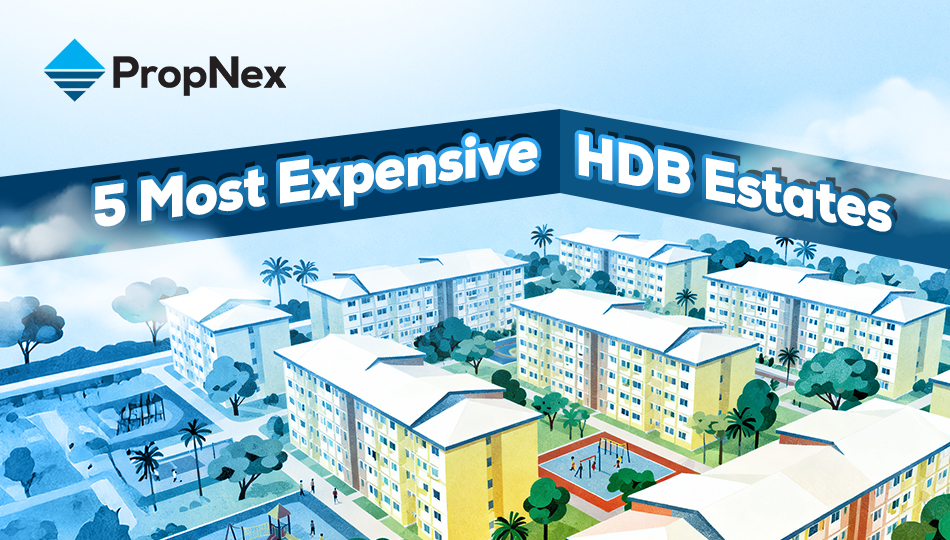
TL;DR Different generations make different property decisions based on very different realities. Boomers: Entered the market when homes were cheap relative to income, savings rates were high, and HDB supply was expanding. Homeownership was achievable after just a few years of disciplined saving. Gen X: The bridge generation benefited from rising incomes and the growth of the resale market, but shaped by crises like the AFC and dot-com crash, making them more cautious yet flexible. Millennials & Gen Z: Facing much higher price-to-income ratios, tighter competition for BTOs, and rising living costs, leading them to prioritise liquidity, experiences, and alternative investments first. Risk mindset: Boomers favour stability, Gen X takes measured risks, while younger generations are more experimental (not out of irresponsibility, but adaptation to today's economic constraints). Key takeaway: Property is still a powerful wealth-building tool, but the timing, sequencing, and strategy matter far more now than simply "saving harder." Each generation needs strategies built for today's prices, policies, and competition. If you ask a boomer what they bought with their first big savings at age 25, the answer is probably: "I used it to buy a home."Ask a Millennial or gen Z the same question today, and you might hear: "Invest lah," "Travel first," or "Let the money grow elsewhere while I figure things out."Same idea of responsibility.Same desire for stability.But wildly different lifestyles, and a completely different economy.So let's unpack it all in this article. In this article, we will explore: Boomers Millennials and gen Z Gen X Risk appetite The bottom lineBoomersBack then, people really knew how to save. So much so that it could've been a competitive sport. In Singapore specifically, the culture of saving and investing grew rapidly precisely during the years when boomers were old enough to start building their wealth.Measured by Gross National Product (GNP), which is the value of products and services produced by citizens both domestically and internationally, savings rate went from -3% in the 1960s to an average of 28% in the 1970s, 41% in the 1980s, and nearly 45% by 2001.Source: singstat.gov.sgOn top of that, the spending culture was much more modest, and people leaned heavily toward prudence. This explains why private consumption was very low, especially when you compare it to countries like Korea and Japan, who have similar per capita income levels to Singapore.Source: IMF, WEO DatabaseBoomers just had a very different lifestyle, and many have kept their habits even today.Dining out? Maybe for special occasions.Holidays? Not every year, and choose somewhere not too far.Shopping for fun? Don't have such a habit!So it's no surprise that even today, about 60% of Singapore's boomers prefer a lower-cost product over a well-known brand.However, it's also important to remember that boomers grew up in a completely different economic reality than what younger generations are familiar with today. Unemployment was declining, inflation was relatively low, and public housing had just started expanding.HDB was only established in 1960 to tackle the housing shortage problem. So as new towns emerged everywhere, demand hadn't caught up with supply, and competition for flats was nothing like today. Boomers were also among the first to benefit from the CPF system (introduced in 1955), which basically "forced" them to save and channel that savings directly into homeownership.More importantly, property prices were much more affordable compared to income. Back in the 1980s, the median household income was about $900, and the price of a 4-room flat in a new town was about $40,000. If you disregard inflation and any other changes, it takes less than 4 years to save up for that home. Of course, these figures reflected a very different economic structure, but the price-to-income ratio still made homeownership far more accessible than today.Fast forward to 2024, the median household income was $9,999 (excluding CPF contributions). Meanwhile, the average resale price of a 4-room flat was $826,550. That's close to seven years of income.Even new flats were not that much better. A 4-room BTO Plus project commanded between $453,000 and $727,000 (based on the October 2024 pricing), which still means up to six years of income to match the price. And again, that's if we don't take inflation into account (which is not realistic, obviously).If the gap is this wide in the public sector, just imagine the private market. Also, if you're buying as a single, the challenge basically doubles. One income, same home prices.So boomers didn't need some big, lucky investment to be able to afford a home. After a few years of disciplined saving, they were able to buy property. That's delayed gratification in action. You save first, enjoy later. For boomers, this was normal, almost expected even.Millennials and gen ZOn the other hand, millennials and gen Z grew up in a different Singapore: higher cost of living, tighter borrowing conditions, consumption culture, online shopping, and easier access to travel and entertainment. And thanks to the convenience of digital payments, the younger generations are spending more on lifestyle categories.The evidence is clear. UOB's card transaction data even show that those under 35 are the top spenders, especially for travel and dining. And honestly, it's not hard to see why millennials and gen Z lean towards experiences, convenience, and the little joys of instant gratification. When property prices keep climbing and inflation eats into every pay cheque, homeownership can feel a little out of reach.It's just like the Lipstick Effect, a theory of behavioural economics. During the early 2000s recession, makeup company Estee Lauder noticed a spike in their lipstick sales. So, the theory suggests that when times are tough and big purchases feel out of reach, people don't stop spending completely. Instead, they treat themselves to the smaller things, like lipsticks.The younger generations are doing the same today. The big stuff can wait, but the small luxuries? Those are the little boosts that get you through life.Just to be clear, these lifestyle shifts didn't cause the affordability gap. They were a reaction to it. It's not that the younger generations are irresponsible with money or don't want to own a home, it's just that they have to adapt to a different environment.And when they do finally decide they're ready to buy a home, they're hit with the tight competition for BTO flats, especially in popular towns. The rise in demand, increased household formation, delayed marriages, and shrinking flat supply in mature towns have made allocation much more competitive. Who's surprised?As a result, it's become a norm amongst younger buyers that desirable BTOs have a lottery effect.Gen XGen X is kind of in between the prudent boomers and the more relaxed younger generations. They grew up watching their parents save aggressively, but they also came of age during Singapore's rapid modernisation, when spending became more common and lifestyles began to shift.During their time, new shopping malls were built, white-collar industries were growing, and the early wave of overseas holidays became more common. So while gen X carried many of their parents' practical habits, they also started embracing convenience, travel, and branded goods in a way boomers never did.Economically, gen X entered the workforce during Singapore's high-growth years of the late 1980s and 1990s, when wages were rising quickly and unemployment was generally low. But they also lived through the Asian Financial Crisis (1997) and dot-com crash (2000), which may be why they're more financially cautious than millennials or gen Z.In terms of housing, gen X was among the first cohorts to shape the HDB resale market, because HDB liberalised CPF usage and rolled out housing grants in the early 1990s. That made resale flats a practical and attractive option for young families, something boomers didn't have access to when they were starting out.So in a way, Gen X is the "bridge" or "sandwich" generation.Risk appetiteBoomers grew up conservative. They prefer stability, security, and guaranteed returns. So they tend to invest in property, maintain savings accounts, perhaps some blue-chip stocks on the side. For them, wealth is something you build slowly and protect fiercely.Millennials and gen Z grew up in a world with cryptocurrencies, NFTs, meme stocks, IPOs, and venture capitals. With digital platforms making investing so easy, they tend to be more adventurous and explore a little bit of everything. For them, liquidity and flexibility matter. So property, with its large upfront cost and long holding period, doesn't always check those boxes.Gen X, again, sits in the middle. They inherited the boomer instinct to "play safe," but they were also the first to experience the rise of unit trusts, insurance-linked products, and the boom of the 1990s stock market. Many of them still prefer steady, long-term assets, but they're not afraid to take calculated risks. Their mindset is very much: "Grow, but don't gamble".But regardless of age, one constant remains: property continues to be one of the most reliable ways to grow your asset. The difference lies in when and how each generation chooses to enter the market.The bottom lineAt the end of the day, every generation is just trying to make the best financial decisions they can with the hands they were dealt.Boomers grew up in an era of stability and affordability, where owning a home only took a few years of saving. Millennials and gen Z, on the other hand, are navigating a completely different landscape: rising costs, income not keeping pace, and more competition. Gen X is somewhere in the middle. They inherit some of their parents' saving mindset, but are also exposed to a lot of modernisation.So it's no surprise that each group behaves differently. They lived through different prices, different rules, different systems, and different levels of competition. These ultimately shaped their lifestyles, spending habits, risk appetite, and housing decisions.And that's why telling younger generations to stop buying lattes or bubble teas isn't going to change anything. Strategies that worked in the 1980s are simply not going to work today. It's not about copying what your parents did back in their day, it's about structuring moves that make sense for today's numbers.That's why you need to have the right planning, sequencing, and financial structure based on today's numbers, not yesterday's assumptions.If you'd like to stay ahead with data-backed insights and practical steps tailored to current conditions, you're welcome to join our upcoming free seminars or even the real estate masterclass. It's a good way to understand your options, whether you're planning your first move or your next one. Views expressed in this article belong to the writer(s) and do not reflect PropNex's position. No part of this content may be reproduced, distributed, transmitted, displayed, published, or broadcast in any form or by any means without the prior written consent of PropNex.For permission to use, reproduce, or distribute any content, please contact the Corporate Communications department. PropNex reserves the right to modify or update this disclaimer at any time without prior notice.
Read more







